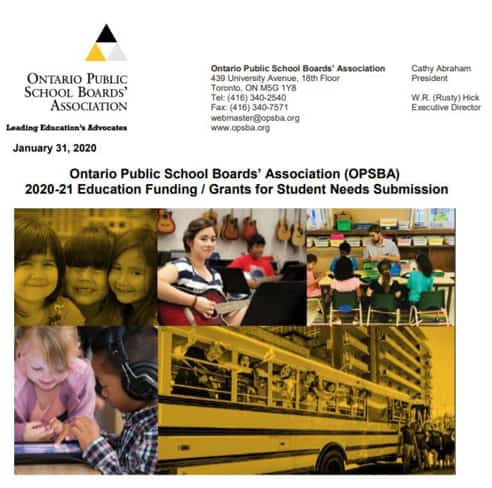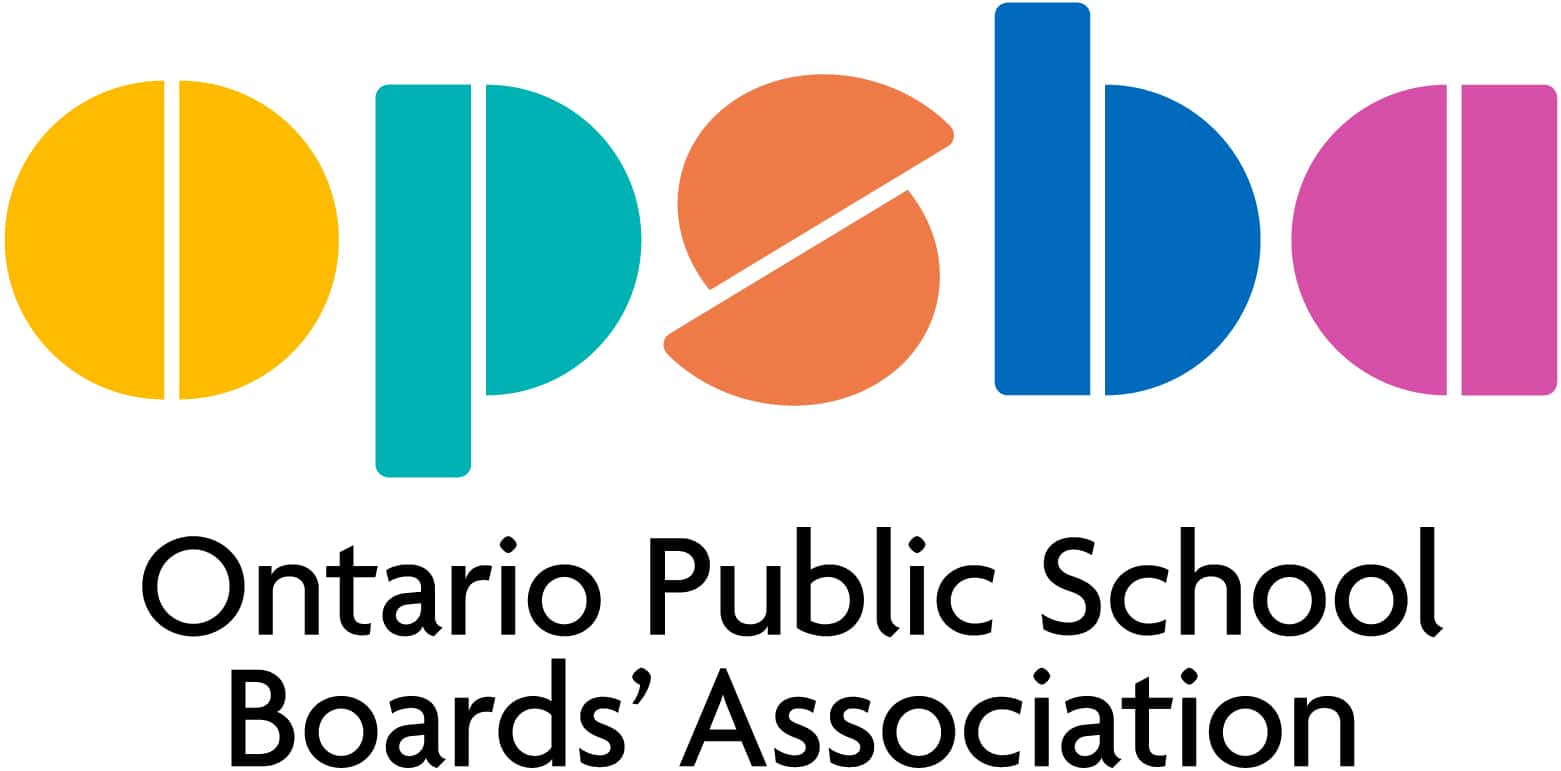
Toronto, February 19, 2020 – The Ontario Public School Boards’ Association (OPSBA) is pleased to announce that it has submitted its response to the Ministry of Education’s call for feedback on the government’s Grants for Student Needs (GSN) education funding plans for 2020-21 school year.
“The recommendations contained in this submission are the culmination of in-depth consultations with our member school boards, and they reflect the priorities of parents and students from across the province,” said OPSBA President Cathy Abraham. “Our message to the ministry is clear – strong, predictable, and equitable education funding is necessary to create the conditions that promote and sustain improved student achievement and well-being. We know issues like Special Education, mental health, and school renewal and repair directly impact the lives and educational experiences of students. It is our hope that when GSN funding is released, the government will demonstrate that it shares these priorities.”
OPSBA’s identified funding priorities include investments in the following areas:
Special Education
Due to pressing needs and circumstances, most school boards are forced to spend more on Special Education than they receive in funding from the provincial government. These funds must be taken from other areas of board budgets. This is an area in which school boards continue to request more supports and resources given the complexities of student needs, especially in northern, rural and remote communities. As well, urban areas attract families of students with significant needs because of greater access to services and supports such as treatment centres.
School-based mental health and addictions services
We know early investments in school-based mental health and addictions services will yield long-term benefits for the healthcare system and the wellness of students. The province should maintain and expand existing resources and supports.
Indigenous Education
We support the creation of a mandatory curriculum that contains clear expectations that every student will acquire knowledge and understanding of Treaties and of the historical context that gave rise to residential schools, the impact on Indigenous children and their families, and the ongoing legacy that is the responsibility of all Canadians.
Classroom and learning technology
OPSBA supports using technology as a vehicle to facilitate learning, but it should never be considered a replacement to the guided face-to-face teaching and learning that occurs in school classrooms. Issues of poverty and a lack of reliable and affordable internet across Ontario lead us to argue against mandatory e-learning. A mandatory approach could create greater gaps in equitable learning opportunities for vulnerable and marginalized populations.
School facilities and infrastructure
Many school boards are dealing with very unique circumstances and as a result they are being challenged with capital and renewal costs for their aging facilities. Schools have needs that are serious and urgent, impacting the ability to meet current program requirements, including funding to adapt or change classrooms that are no longer relevant or being used. We’re recommending the government release its list of capital priority projects as soon as possible, and the Ministry of Education conduct a review of benchmark funding amounts to more accurately reflect market costs, which vary from region to region.
Reducing Red Tape and Administrative Burden
This year, the ministry has asked stakeholders for “initiatives that could support reducing red tape and administrative burden for the education sector.” It must be stated that efficiencies are constantly being found by school boards and schools so that as much funding as possible is directed to students in the classroom. School boards have long been streamlining back office functions and taking advantage of technology. With regard to reducing red tape, we suggest the ministry consider the following:
- Lift the moratorium on school closures and release the revised Pupil Accommodation Review Guidelines (PARG). This will allow school boards to make prudent programming and financial decisions.
- Amend the Education Development Charge (EDC) regulation. Allow for flexibility for non- eligible boards to collect EDCs and increase the EDC rates to one that accurately matches actual land purchase costs.
- Use current census data and authentic benchmarks for funding calculations.
Key Links
- OPSBA’s submission can be read in its entirety on the OPSBA website.
- Recent OPSBA-Nanos Research polling shows strong support for public education investments.
For more information, please contact:
Shane Gonsalves
sgonsalves@opsba.org
Managing Director, Government Relations and Public Affairs
Ontario Public School Boards’ Association


